source: im genderfluid and i said so | my main is @flutegremlin | icon by @lokorum, header by @heydavidtennant
Don't wanna be here? Send us removal request.
Text
hhhh my good omens interest is running dry and this blog might be dying :// sorry guys
#exhibit 29485839 why i wanna get tested for adhd: im pretty sure this is one of ever so many hyperfixations ive experienced#which is why ive now lost interest#also dont reblog pls
12 notes
·
View notes
Photo


Fun? It’s humiliating. You can do proper magic, you can make things disappear.
moar sketchy studies
5K notes
·
View notes
Text
hell to crowley : do you want the ultimate honor the resonsibility the prestige of bringing the antichrist into the world of starting him down his path to evil and the eventually destruction of the world?
crowley:

8K notes
·
View notes
Text

“Amazon’s Good Omens is an ambitious story about a lot of big concepts: faith, destiny, free will, and forgiveness. It’s also a story about love, of every size and variety, but it focuses primarily on the unlikely and unconventional relationship between a bookish angel named Aziraphale and a caustic demon called Crowley.
While the pair’s relationship is not given any sort of official name on the show—though Queen’s “Somebody to Love” does play rather cheekily at one point when one thinks the other is dead—it’s hard to dispute the fact that the connection between the two is the linchpin around which the entire series turns. Furthermore, the genuine love between Crowley and Aziraphale is not just sweet to watch, but presented as utterly necessary to the story Good Omens is telling.
The idea of interpreting Aziraphale and Crowley’s relationship as something more than just “the most epic bromance of all time” isn’t a new one. Fans have been rooting for this crazy odd couple to become canon pretty much since the day the book was published back in 1990. And by all accounts, they’re even more into the idea than ever before. (The series, and the pair at its center, have consistently ranked as one of the top five most-discussed topics on Tumblr since it premiered back in June.)
Author Neil Gaiman has repeatedly said that any interpretation of the duo’s relationship is best left to readers. (Though, according to internet lore, he also revealed that the two retired to a cottage on the South Downs together following the almost-Apocalypse, so here’s hoping we hear the rest of that story someday.) Star Michael Sheen is possibly the biggest Aziraphale/Crowley shipper on Earth, and can name the precise moment he feels the angel began to care about the demon in a “more than just friends” sense. David Tenannt seems to fall somewhere in the middle, generally defaulting to the language of buddy cop films to describe their repartee.
Of course, Good Omens itself leaves us a lot of room to maneuver in defining the specifics of Aziraphale and Crowley’s relationship. The two are celestial beings, after all, which means it’s highly doubtful that they are governed by the same physical needs and laws as humans are, regardless of what sort of corporation each currently inhabits. The mere concept of things like romance or sexual attraction may not exist for them as we understand it. Therefore, their story automatically lends itself to a sort of choose-your-own-adventure feel. If you want to ship it, there’s certainly enough onscreen evidence to support your feelings. And if you don’t, that’s fine too.
But what does seem apparent, no matter what side of the are they/aren’t they divide you fall on, is that Crowley and Aziraphale absolutely love one another in the deepest, purest sense of the word, and that connection drives not just their relationship with each another but the entire world of Good Omens.
Talk to anyone who’s watched the show, and they’ll inevitably mention that one of their favorite moments is the extended 28-minute sequence that opens Good Omens’ third episode. The segment, which fills in the backstory of Aziraphale and Crowley’s millennia-old relationship, follows the angel and demon through everything from the Biblical flood to the Reign of Terror in France. Along the way, what starts as mere professional courtesy between them grows into something more complicated, and eventually the two find themselves constantly breaking the rules, going out for crepes on the regular, and rescuing one another from Nazis.
All of this plays out like the most sumptuous of rom-coms, complete with Crowley saving Aziraphale’s rare books from bombs in the Blitz, and Aziraphale guilting Crowley into making Hamlet a hit. (That first bit, incidentally, is the most romantic scene on television this year. Fight me.) The two are monstrously co-dependent, and their dynamic together resembles nothing so much as an old married couple who’ve settled into the idea that there’s nothing for either of them but each other. Thus, when the two basically decide to co-parent the Antichrist in an attempt to thwart the coming Apocalypse, well, it barely even feels weird.
And to be honest, it really shouldn’t.
Aziraphale and Crowley may have been initially thrown together by circumstance but their unique situation forces them to become something more. No other being understands their experiences, because no one else has seen the things they’ve seen. No angel or demon has lived among God’s creations for so long, or seen them at their wondrous best and most destructive worst. Crowley and Aziraphale grasp humanity’s triumphs and failings as others don’t, and they love them for it all. And in doing so, they learn to love each other, too.
Perhaps the bureaucracies of Heaven and Hell have both forgotten this fact, in the midst of their cosmic struggle. These creations-angel, demon and human alike—were formed by the greatest love there has ever been, and are all reflection of that fact in their own ways. And perhaps Good Omens is so popular precisely we ourselves need the reminder too: That love has always been the thing that unites us, whatever the differences that divide the creatures above, below, and within this world might be. It’s the Almighty’s greatest gift, and the maybe only thing truly worth fighting for.
(Remember, after all, that it’s not the threat of Crowley’s own death that motivates him in the final battle against Satan. It’s Aziraphale threatening to never speak to him again.)
Perhaps it’s merely the chance of proximity that ultimately leads Aziraphale and Crowley to care about one another so fiercely. Perhaps it’s because they’re both divine beings, initially formed of love themselves, and therefore their default factory setting is merely intense emotional attachment. Or maybe it’s a deliberate narrative choice, and their connection was the point of everything all along.
Good Omens is the sort of story that desperately wants us to choose not to be cynical, and to embrace big, gloppy sentiment with arms wide open. Armageddon is thwarted not through battle or manipulation or even divine intervention, but love. Between an angel and a demon, no less, who choose each other over and over again though they’re not supposed to do so. But also, it’s between a boy and his father. Among friends and neighbors and strangers who just met. And in the ineffable machinations of a Higher Power who has never abandoned Her Creation—though it may not have always seemed that way.
In short: Love is a radical act, and always has been.
From the very beginning of Aziraphale and Crowley’s story, this has been the case. In the Garden of Eden, the Serpent tempted Adam and Eve to disobey, in order to give them the power to choose their own futures. The Angel of the Eastern Gate broke the rules to gift the fleeing humans his sword, and spent the next six millennia lying to the servants of the Almighty about what happened to it. In their simplest forms, these are acts of love.
Perhaps they’re not the sort that we ourselves can often emulate—and if someone has a flaming sword at home, please leave it there—because we’re probably not all equipped to save the world from Armageddon. But we can choose each other, whether that means rescuing priceless books, delivering a thermos of water, or simply learning to care about those who most different or alien from us. We can do small things with great love. And change the world along the way.”
[pastemagazine.com]
4K notes
·
View notes
Text

This is one of my wallpapers on my laptop.
Just now it hit me. Look closely. Do you see the skull?

Mindblow.
Please tell me I'm not the only person who overlooked it the first three hundred times they have seen this picture.
16K notes
·
View notes
Photo
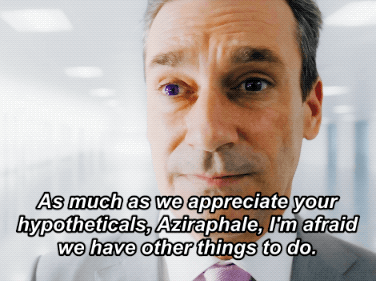
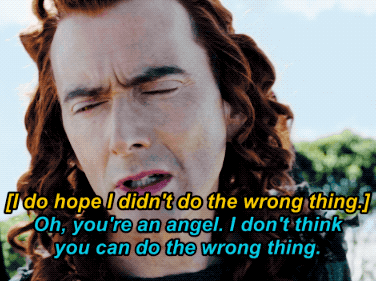
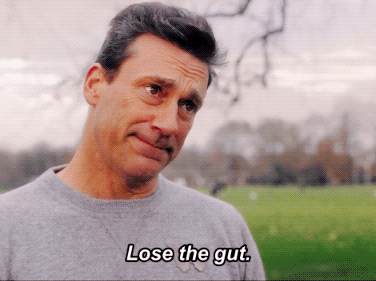

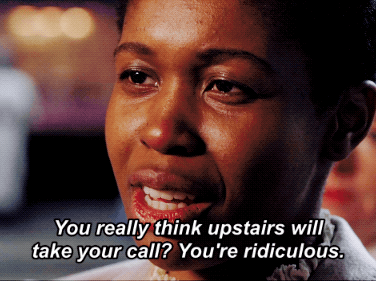
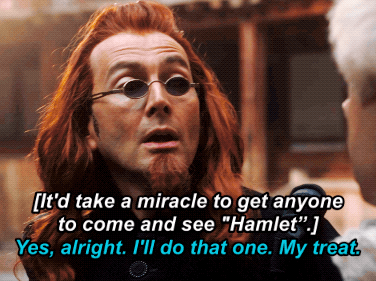

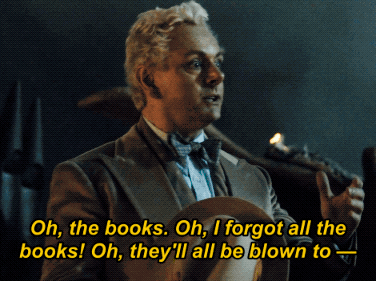

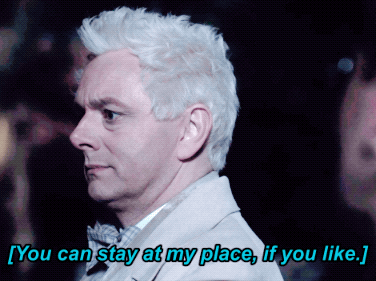
how angels treat aziraphale vs how crowley treats aziraphale
46K notes
·
View notes
Text
CRACK GO HC #1
Aziraphale can't actually read. He just thinks books are neat to look at
29 notes
·
View notes
Text
Not to be a filthy centrist but is anyone else getting tired of the long-winded think-pieces saying that Good Omens is pure homophobic queerbaiting crap, but also tired of the equally extensive think-pieces about how it’s deliberately subversive queer representation?
Maybe I’m just a jaded third-world homo but “good representation” is not the end-all be-all of LGBTQ+ activism… I’m not saying that media representation isn’t good. It’s very valuable. But the worth of one single book or miniseries in presenting a minority group as out and proud and unambiguously virtuous in its text is, at the end of the day, almost irrelevant from a societal perspective.
It’s more important to look at the artwork in its wider societal context and the way that society reacts to media with LGBTQ+ people as a whole, rather than fight endlessly with each other over the minutia of “representation” in a single work. As important as it is to us, straight cis people don’t care about our deep-dive meta.
A single piece of media is going to speak differently to each person, because we have different needs. Entertainment is subjective and emotional, and that’s why what appeals to you and is important to you might not appeal to someone else who shares your identity and experiences, and vice-versa.
We collectively had the exact same fight about Yuri on Ice 3 years ago, and it made that fandom insufferable because gays just wouldn’t stop sniping at each other and spreading misinformation for 3 seconds to realize that we’re not each other’s enemies, and maybe you don’t need to justify why you love or hate this series, because at the end of the day it’s not going to change the world. It’s not revolutionary in a good or bad way. It’s a tiny change in a sea of changes.
It’s also funny that, just like YOI 3 years ago, most of the people going on and on why this media is evil and disgusting and you’re a bad, gullible person for liking it are as much hyper-fans as the people lavishing it with praise. You guys aren’t as different as you think you are.
43 notes
·
View notes
Text


HC: 1920s, and Crowley is a singer in a night club where all the town's baddies go to discuss private business. Just imagine a night where he invites Aziraphale to hear him sing "Smooth operator" :)))
I've been listening to this song all day
7K notes
·
View notes
Text

*what happen before he woke up*
I’ve been trying out warm colors than greys.
2K notes
·
View notes
Text
I just have to say, when Aziraphale gave away his sword back in Eden? It wasn’t just an act of disobedience to Heaven (or God, or just the rules, whichever you want to take it as) in favour of kindness, it can’t have been if you look at it from Crowley’s perspective. It was specifically showing kindness to those God had just cast out in punishment, something that Crowley can acutely relate to. It was an act that revealed Aziraphale still considered them deserving of his care and love and not just scorn and disdain.
But then again they’re humans and Crowley is a demon, he can somewhat relate to their current situation but it’s not the same, right? Doesn’t have to mean anything. Except then the first rain comes and, in shielding him from it, Aziraphale shows the same kindness to him as well. And the rest is history.
7K notes
·
View notes
Photo
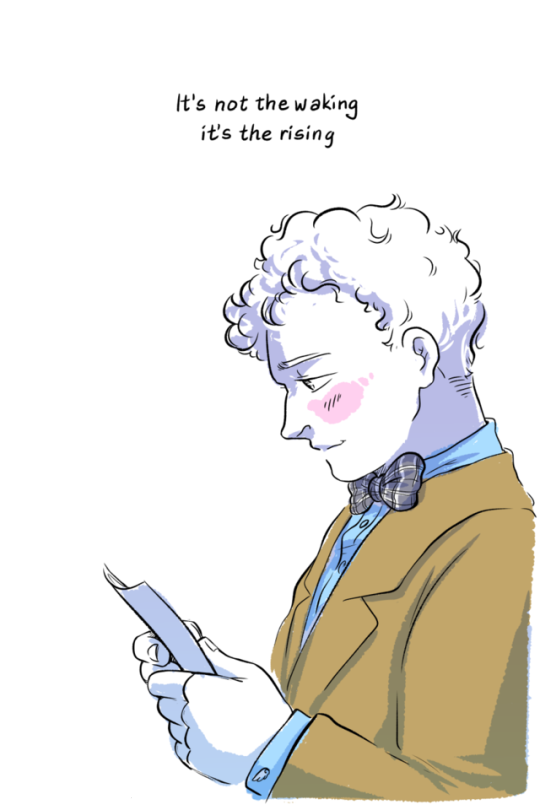
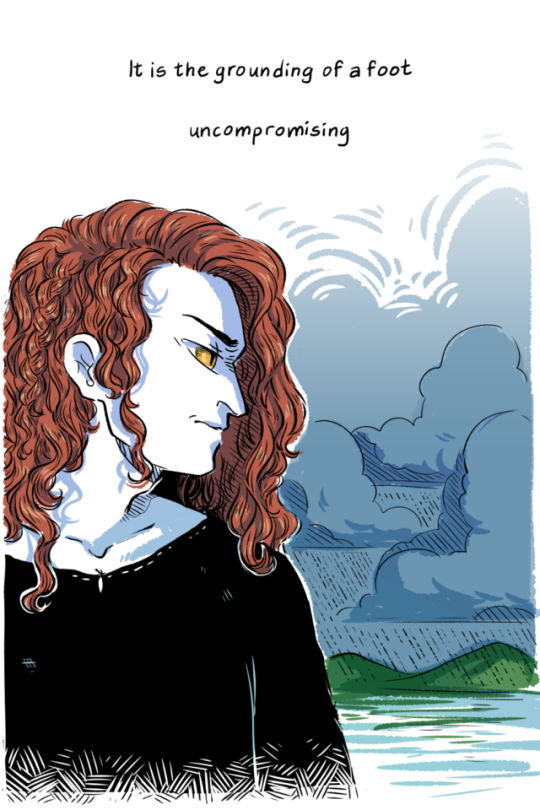

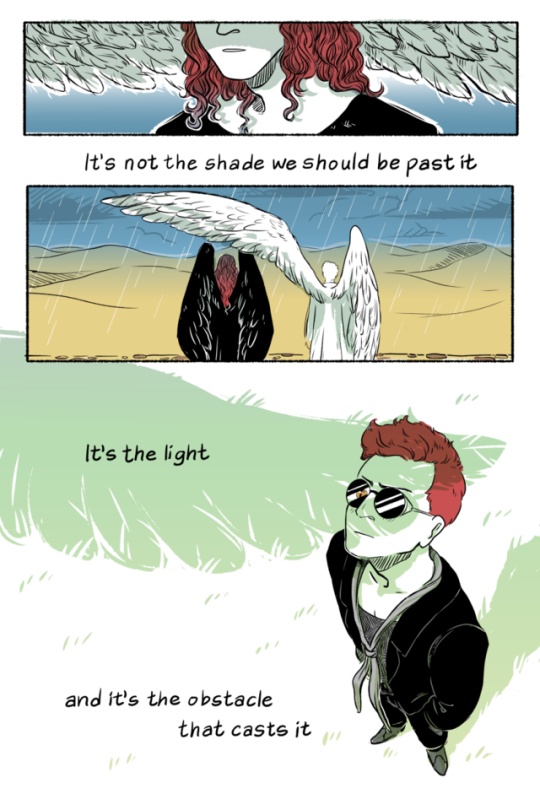
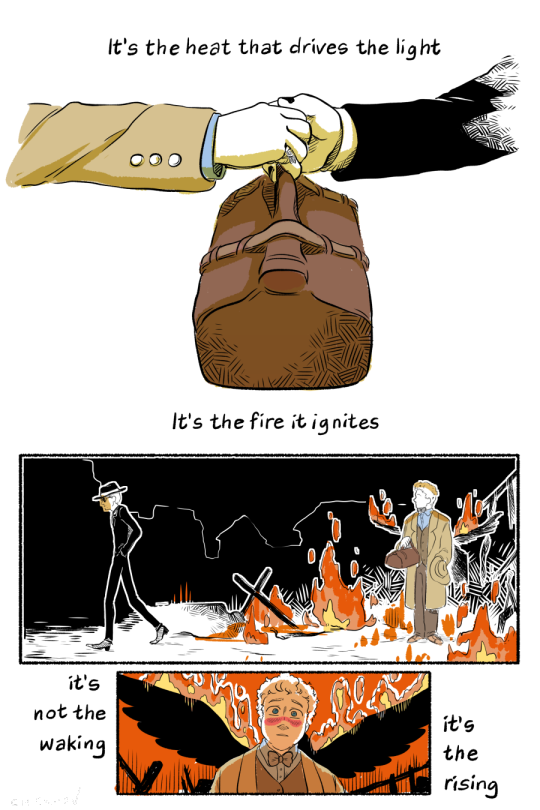
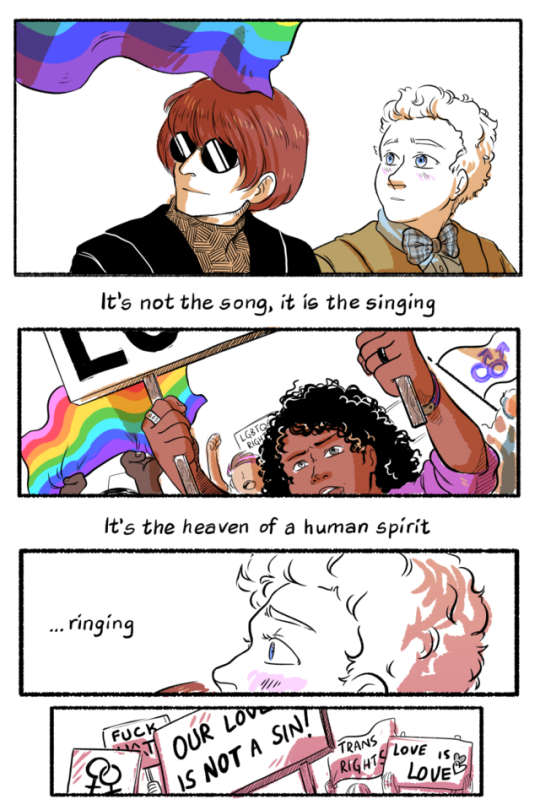
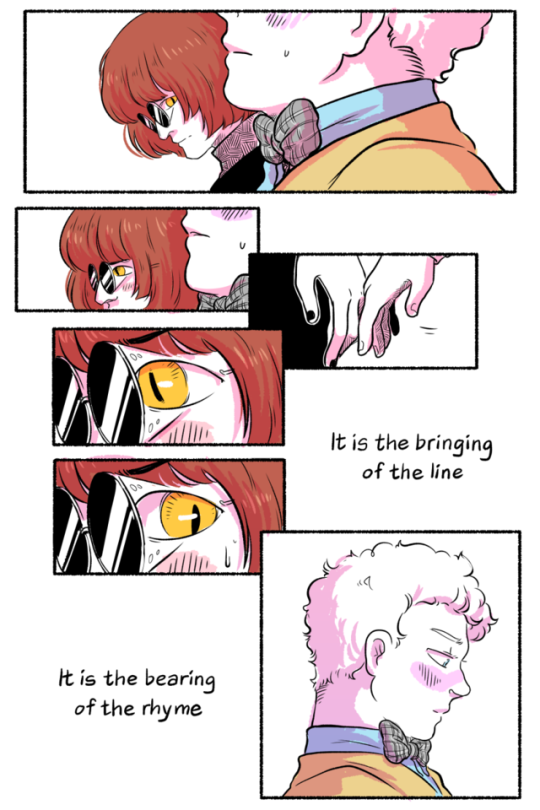
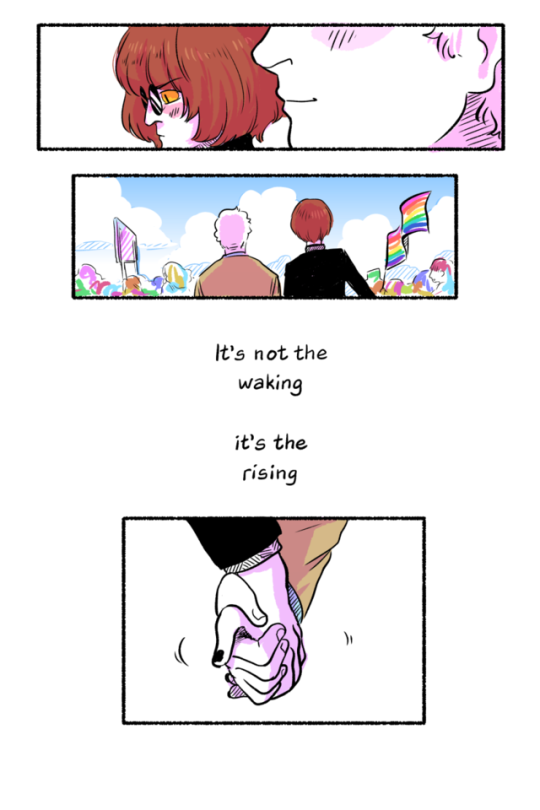
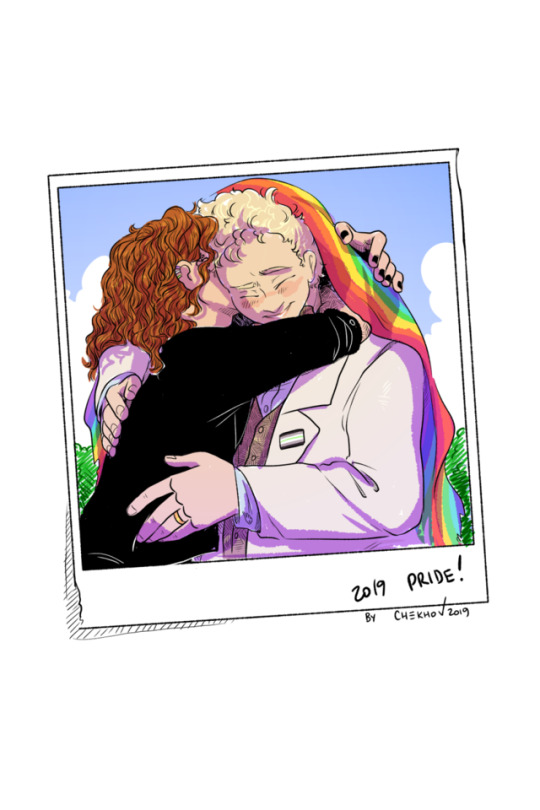
It’s not the wall but what’s behind it Oh the fear of fellow man, it’s mere assignment And everything that we’re denied By keeping the divide It’s not the waking it’s the rising
39K notes
·
View notes
Text



I wonder if, people walk into Aziraphale's shop to find him with a black snake just wander around sleeping on his scatering piles of books.
I imagine they be thinking: that's an odd combination (?) And Azi be like: oh dont worry dear, he might be feisty sometimes but he's the most adorable darling ever.
And Crowley would just star n do things with his tongue on Azi's face, as a gesture of adoration.
P/s: i'm sorry about the lengthy post
6K notes
·
View notes
Photo




thinks about fun love songs and rhythmless swaying and the tender unfathomable cherishing between two celestial beings in silence
18K notes
·
View notes


















